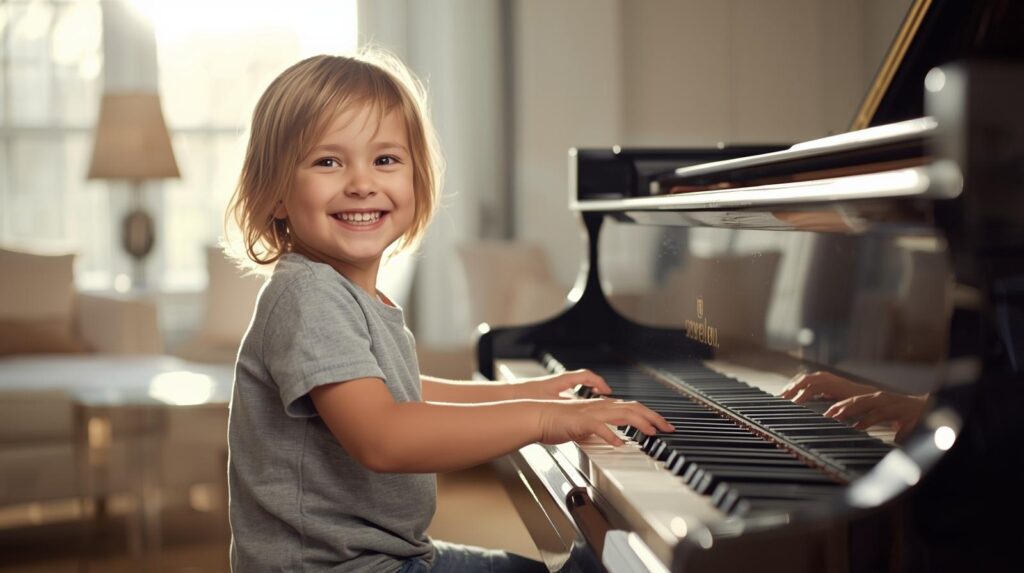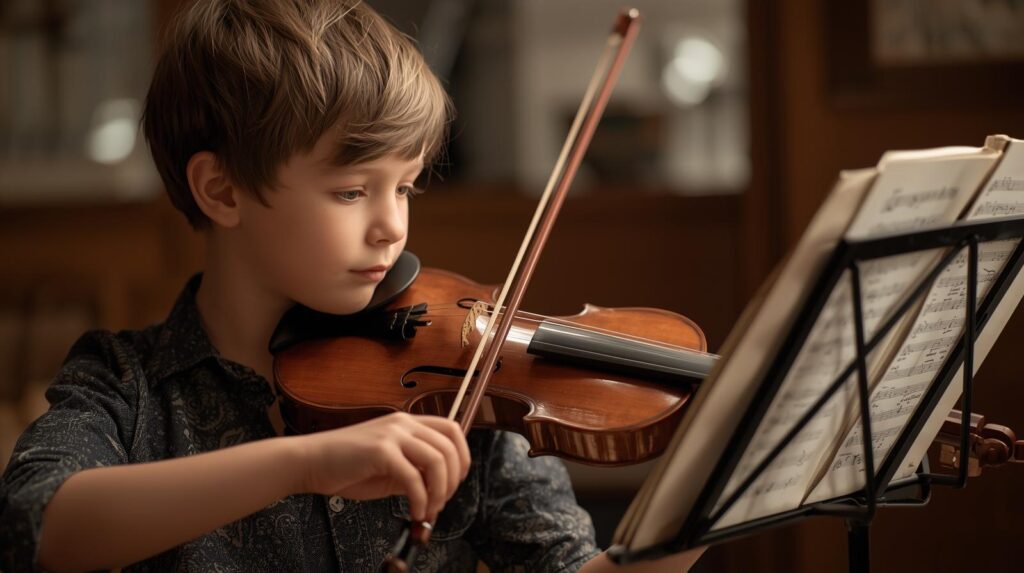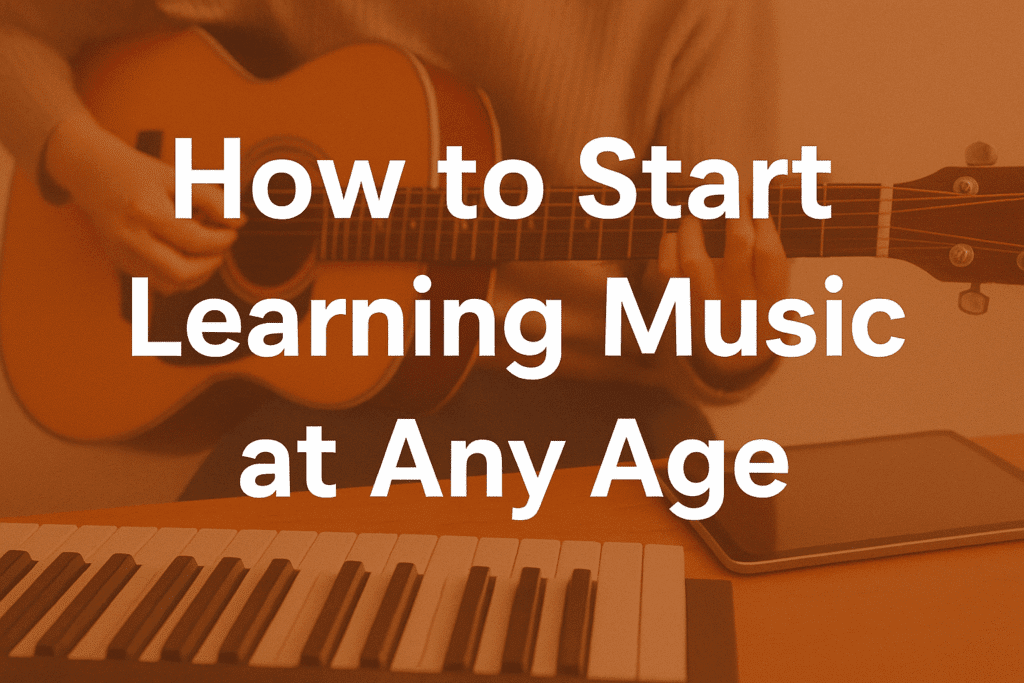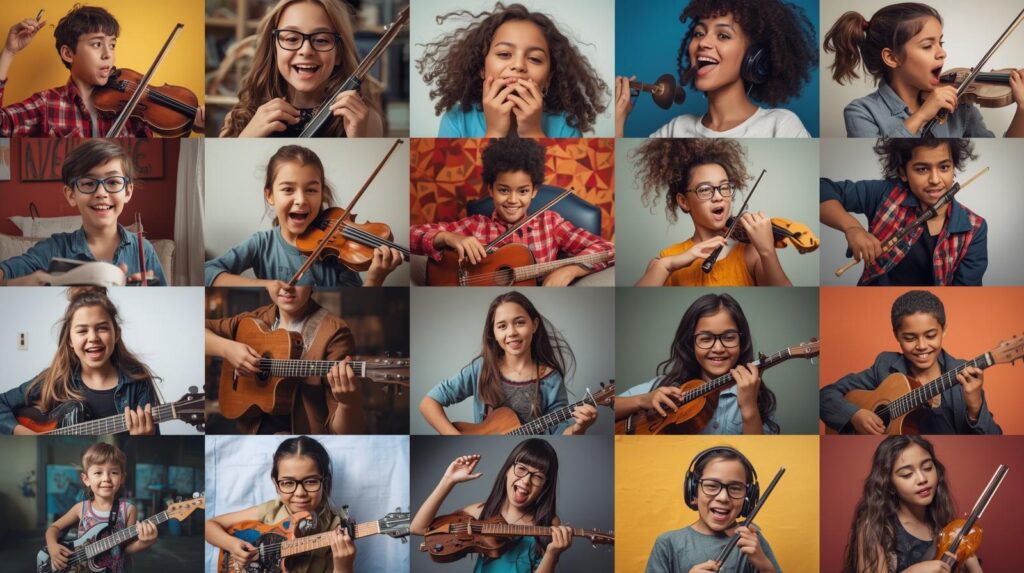The Best Age to Start Learning Music. Does It Really Matter?
Music is a universal language that transcends boundaries, cultures, and generations. Many parents and beginners often ask, “What is the best age to start learning music?” The answer is not as straightforward as it seems. While starting young has its advantages, learning music at any age can be beneficial.
At Mystic Keys, we believe that music is for everyone—children, teens, and adults alike. This blog explores the science, benefits, and practical tips for starting your musical journey, no matter your age.
Why People Wonder About the Best Age To Start Learning Music

Music is both an art and a skill. Some people believe that starting very young is essential for mastering instruments or singing. This idea comes from observing child prodigies who start at age 3 or 4. While early exposure can help, it’s not the only factor in developing musical skills.
The Advantages of Starting Music Early

Starting music at a young age has several benefits and understanding the best age to start learning music can make a significant difference:
Brain Development and Cognitive Growth
Research shows that early musical training, especially when choosing the best age to start learning music, can improve memory, concentration, and problem-solving skills. Young learners often develop better auditory perception and motor skills, which are essential for instruments like the piano and violin.Building Discipline and Focus
Learning music requires practice and patience. Children who start at the best age to start learning music often develop strong discipline, focus, and time management skills that benefit them beyond music.Ear Training and Perfect Pitch
The earlier a child is exposed to music, the more likely they are to develop skills like perfect pitch and strong ear training. Knowing the best age to start learning music can enhance overall musical ability and long-term progress.
Can Adults Learn Music Successfully?

Absolutely! While early exposure has advantages, adults have unique benefits when learning music:
1. Motivation and Goal-Oriented Learning
Adults often have clear goals and self-motivation, which can accelerate learning and improve practice efficiency.
2. Cognitive and Emotional Benefits
Learning music as an adult enhances memory, reduces stress, and provides emotional satisfaction. Studies show that adults learning music experience significant mental health benefits.
3. Flexibility in Choosing Instruments and Styles
Adults can select instruments and genres based on personal preference rather than parental influence, making learning more enjoyable and tailored to individual tastes.
Signs Your Child is Ready to Start Music

Even though starting early has benefits, readiness matters more than age. Look for these signs in children:
Interest in musical sounds or instruments
Ability to focus for short periods
Enjoyment in singing or clapping rhythms
Curiosity about creating music
At Mystic Keys, we tailor lessons to each child’s abilities, making learning fun and effective.

How to Start Learning Music at Any Age
Whether you are 3 or 50, starting music requires a structured approach:
1. Choose the Right Instrument
Pick an instrument that suits your physical ability, interest, and goals. For children, lightweight instruments like the ukulele or keyboard are ideal. Adults might explore piano, guitar, or digital music production tools.
2. Take Professional Lessons
Expert guidance ensures proper technique, faster learning, and reduced frustration. Online lessons from Mystic Keys make learning convenient and personalized.
3. Practice Consistently
Consistency is more important than long hours. Short daily practice sessions are more effective than occasional long sessions.
4. Embrace Fun and Creativity
Enjoying music keeps you motivated. Experiment, improvise, and explore new genres to keep learning exciting.
Myths About the Perfect Age to Start Music
Myth: You must start as a child to be good at music.
Fact: Many adult learners become highly skilled musicians with dedication.Myth: Early starters will always outperform late starters.
Fact: Passion, practice, and guidance often matter more than age.Myth: Music is only for kids or young people.
Fact: Music is lifelong—any age can enjoy and excel.
The best age to start music is less about numbers and more about readiness, interest, and motivation. Children benefit from early exposure, but adults can achieve great musical success too.
At Mystic Keys, we encourage everyone to embrace music, regardless of age. Our experienced instructors provide personalized lessons, whether you’re a child discovering your first notes or an adult rekindling a lifelong passion.
Call to Action:
Start your musical journey today! Explore online lessons at Mystic Keys and find the perfect instrument and guidance for your age and skill level.
For more information and exciting resources about learning music, visit our website at The Mystic Keys. For more music content and exciting offers follow us on
Facebook, Instagram, YouTube, LinkedIn, Twitter, Pinterest, and Threads.
Related Blogs
How The Mystic Keys Ensures Rapid Music Learning for Beginners
Learning music as a beginner can often feel like an overwhelming journey. Whether it’s the excitement of picking up a new instrument, singing for the first time, or mastering a new style, the process can seem long and challenging. However, with the right guidance and resources, beginners can quickly gain confidence and proficiency in their musical abilities.
When considering an online music platform, one of the first questions is often about affordability. The Mystic Keys (TMK), a leading music academy offering a wide range of lessons, is no exception. Many aspiring musicians and learners in the UAE and beyond wonder: Is The Mystic Keys really costly? In this blog, we’ll explore the factors behind TMK’s pricing
When starting your music education, it is crucial to choose the right platform that supports and nurtures your development. The Mystic Keys stands out as the Best Choice for Beginner Music Learners because it provides a personalized, structured, and engaging approach. Whether you’re starting as a child or an adult








